Water advocates send a message about solar energy from Rarotonga
The nexus between water treatment and solar energy is clearer then ever before. In September, a delegation from the International Solar Alliance (ISA) participated in the Pacific Water and Waste Association (PWWA) conference in Rarotonga, Cook Islands. This meeting highlighted an urgent issue: the exploration and promotion of solar-energy technologies as a key tool for preserving and improving access to water. During the conference, ISA met young activists such as Mary Alalo from the Solomon Islands and Hereiti Thon Sing from Tahiti, whose stories serve as a record and explanation of the need for a collective call to action in the Pacific.
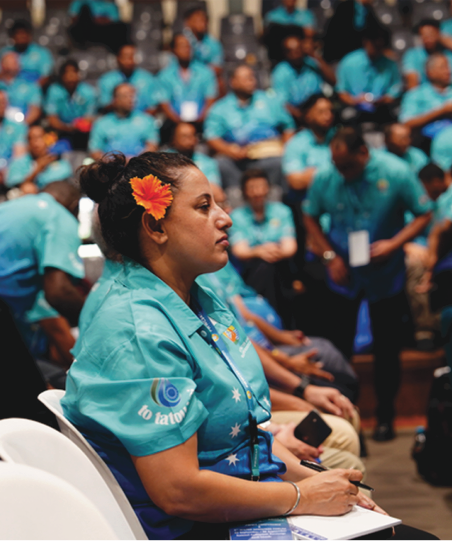
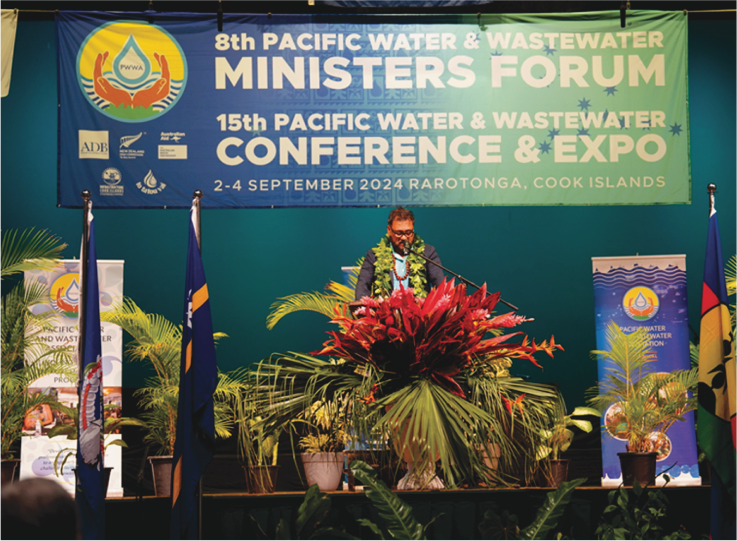
The Pacific Ocean, home to more than 20,000 islands scattered across a vast blue sea, hosts a natural wealth that affects the lives of its inhabitants: this part of the world contains more than 75 percent of all known coral species, the largest expanse of mangrove forests, and is home to hundreds of thousands of marine species, a true treasure of biodiversity that brings with it the responsibility to preserve it from both institutions and communities. However, these islands face growing environmental challenges, especially regarding access to drinking water. In many island communities like the Solomon Islands, Kiribati, or the Marshall Islands, water sources are limited, fragile, and dependent on seasonal rains, making it difficult to supply this resource and also to maintain hygiene and sanitation. According to data from The Joint Monitoring Programme (JMP) report – Progress on household drinking water, sanitation, and hygiene 2000-2020 published by UNICEF and WHO, the Pacific is progressively advancing toward the sixth sustainable development goal (SDG) to "Ensure availability and sustainable management of water and sanitation." This mission requires the collaboration of governments, civil society, NGOs, and, among other actors, youth, to reduce dependence on aquifers that are easily contaminated or overexploited, avoid plastic pollution, and reduce the impact of industrial activities harmful to the ocean.
Childhood in the Pacific and the struggle to access water
Mary Alalo recalls how, since childhood, access to water was not something she could take for granted. She grew up in Tikopia, a small volcanic island in the Solomon Islands, where potable water was only available sporadically. "When the tap water stopped flowing, we had to get up very early to go to the beach and collect water from an underground stream we called tufu," she explained. This early experience taught Mary the importance of water resources and managing them effectively, especially on an island where water sources are limited. But her island was not the only one where water was a major concern, and people had to juggle covering basic needs like drinking, cooking, and personal hygiene.
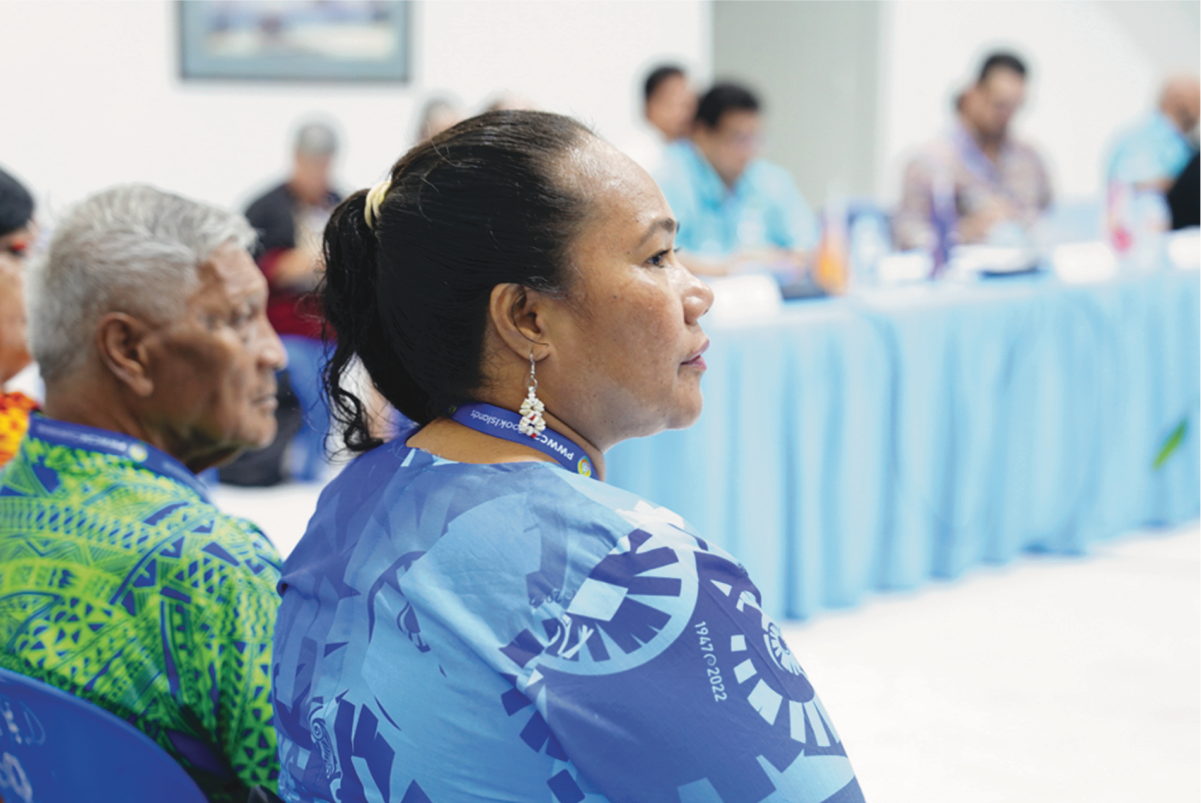
Hereiti Thon Sing recalls her connection with nature during her childhood in Tahiti: "We used to go to the Papenoo valley with my dad and grandmother. We climbed to reach a small stream to catch wild shrimps. The biodiversity and its environment were really precious to me but now it could be easily impacted by anthropic activity," she warns. Other threats like rising sea levels also concern her, in an island that not only fights to maintain its existence but also to increase its autonomy in managing water resources.
Fighting for the environment in the Pacific: starting the revolution at home
Hereiti is clear: while big changes may lie in the hands of institutions, equally important is the fight at the domestic level to ensure each household preserves the environment. "I've already started with my family, I try as much as possible to talk about small things like using reusable bags for groceries or sustainable bottles to drink water without using so much plastic. Since we didn’t have potable water from the tap before, my parents are more accustomed to drinking bottled water. Sometimes it’s hard to change habits, but now that I’m working in this area, they are more willing and confident to change old habits and drink tap water," she says.
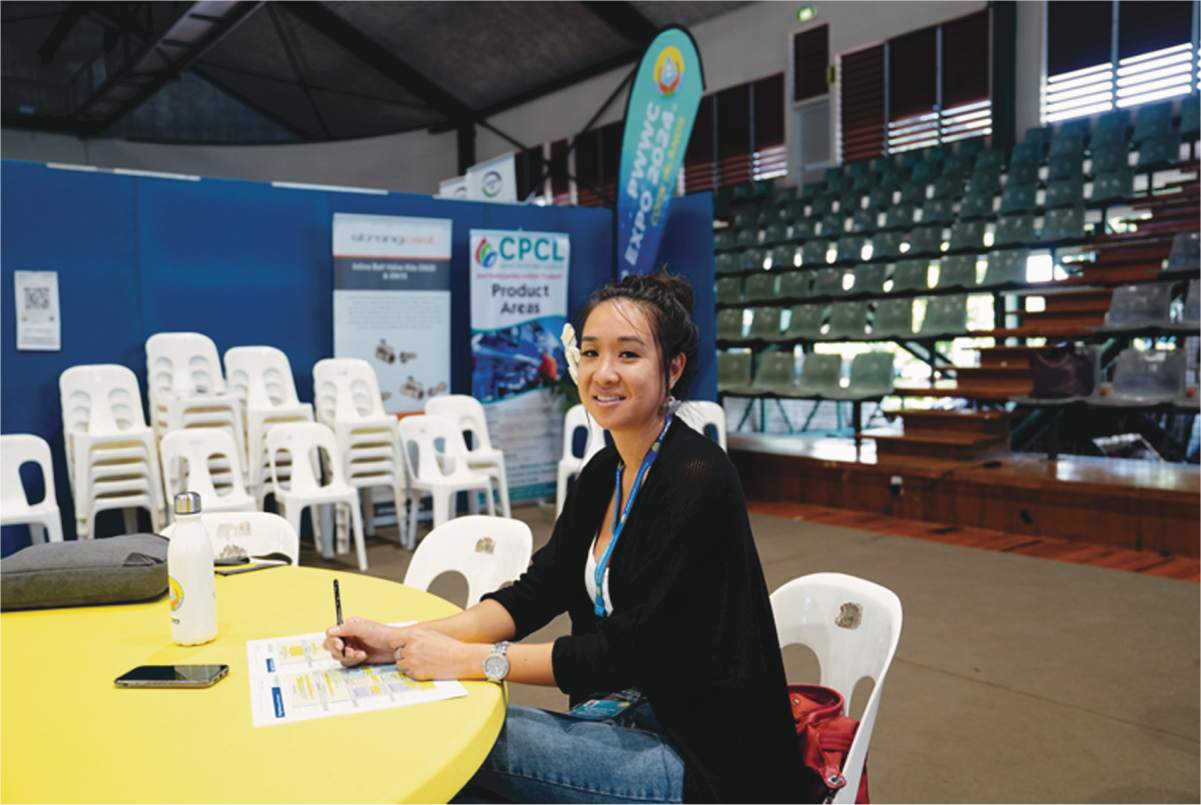
In fact, Hereiti not only makes environmental preservation her personal cause to spread among her loved ones, but she has also made this passion her work. She is currently part of Polynésienne des Eaux, a company that provides water and sanitation services to four different communities in French Polynesia: Bora Bora, Papeete, Pirae, and Moorea. During the conversation, she repeatedly emphasizes the value of water treatment, particularly wastewater in her land, and the promotion her company does for the circular economy by seeking local partnerships and suppliers, prioritizing quality over quantity or even price. Sustainability, she reminds us, is not just about wasting less water or improving visible infrastructure, but also about consuming more responsibly and sharing resources effectively among citizens.
Beyond sustainability: access to water as a matter of dignity
Mary recalls the precariousness of the water supply and its consequences during her adolescence: "When I was 13, I attended the provincial secondary boarding school Luesalemba. The students bathed daily in the river and also washed clothes. Boys above the river and girls below. Due to the lack of running water, we used the sea for hygiene, which forced us to practice open defecation. It was terrifying to go to the sea for hygiene," she laments.
In fact, relying on surface water sources is a practice even applied to drinking water. Statistics reflect the disparity in access to potable water in the Pacific region: 37% in rural areas of Papua New Guinea to 95% in Fiji, according to the Pacific Data Hub. The combined coverage levels of basic water and basic sanitation are lower than in any other region in the world, and nearly one-third of Pacific people still rely on surface water sources for drinking. This water is not free from pollution and could present health risks such as the intake of bacteria, chemical residues, parasites, and other harmful elements.
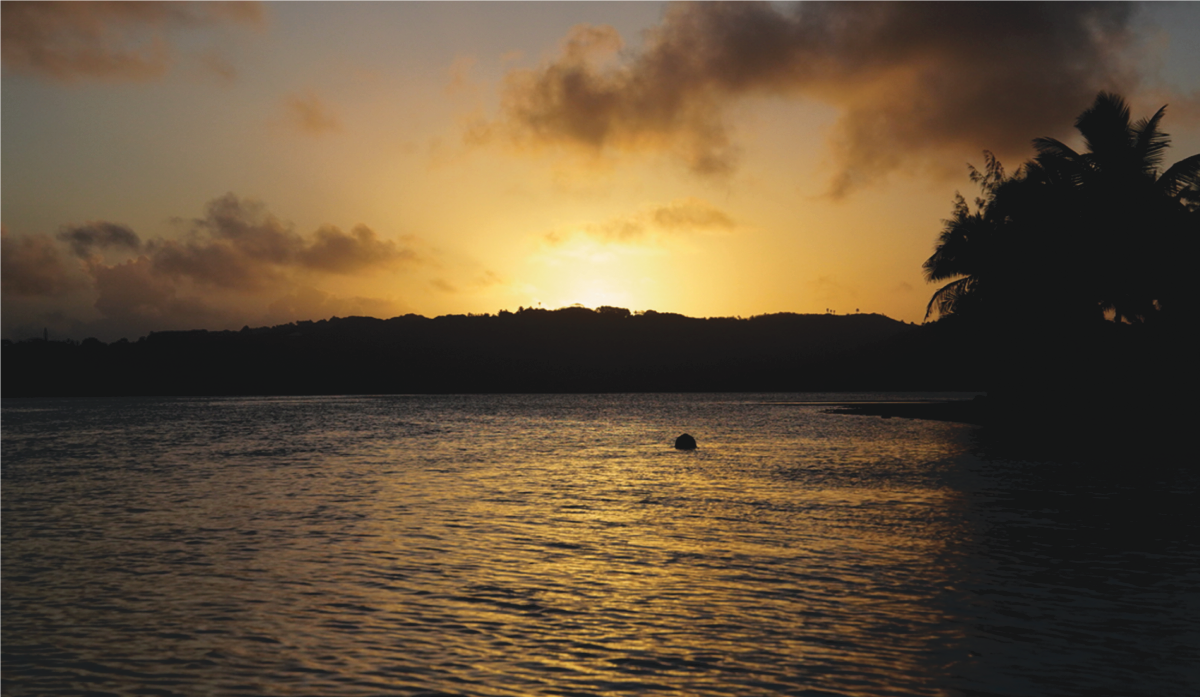
Renewable Energies as effective interconnected solutions: Where the Sun Meets Water
During her student years, Mary began to hear debates about conservation and environmental sustainability. It was discussed in her family, at school, and in the village... She began to understand that extractive industries like mining and logging were putting the natural resources of Pacific islands at risk. For example, deforestation reduces the soil’s ability to retain water, increasing runoff and causing flooding. Without trees, water does not filter into aquifers, affecting groundwater levels. Additionally,
by removing transpiration, the water cycle is altered, and availability is reduced. It also destroys aquatic ecosystems, causing erosion and sedimentation that worsens water quality, while releasing pollutants like pesticides and fertilizers.
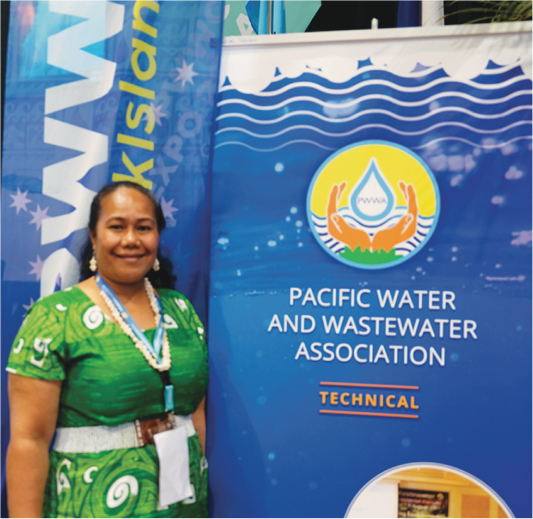
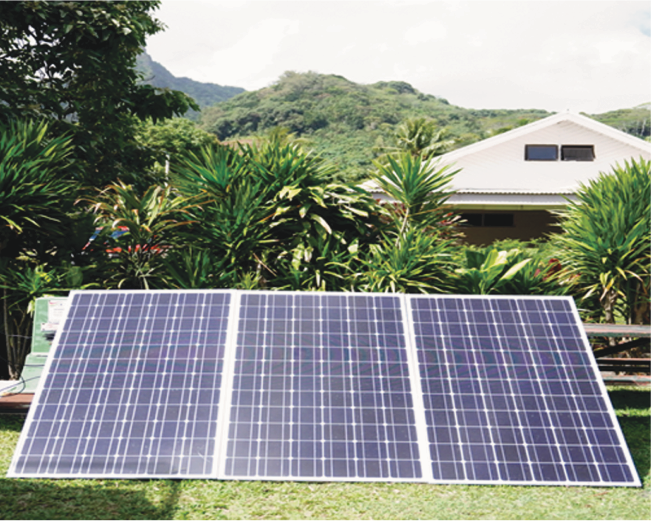
Similarly, organizations like the International Solar Alliance advocate for climate change solutions to be understood as interconnected forces. The impact of solar energy on the lives of the population goes beyond reducing electricity costs or sustainability, but also has enormous potential to mitigate the effects of climate change and solarize the machinery that allows for water treatment and purification, an especially necessary action on islands completely surrounded by vast stretches of saltwater.
”Solar energy will significantly reduce the reliance on any fossil energy as we tend to rely on importation. Electricity has a significant cost here in French Polynesia and the youth are trying to find new ways to reduce cost and environmental impact. It will also reduce environmental damage as we have hydraulic dams, and we should rely on more durable and environmentally friendly equipment for a better future. Solar panels are more affordable, and the government funds households to acquire that equipment," says Hereiti, envisioning a Tahiti where solar energy is used extensively.
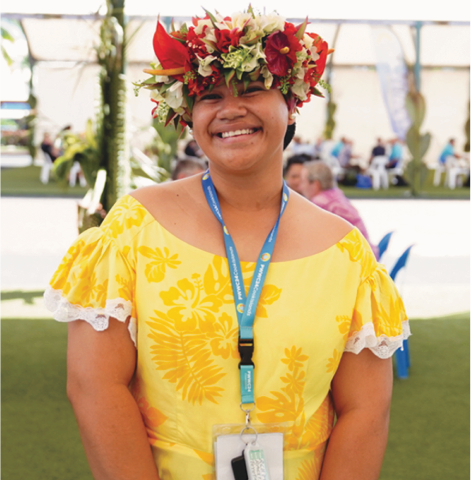
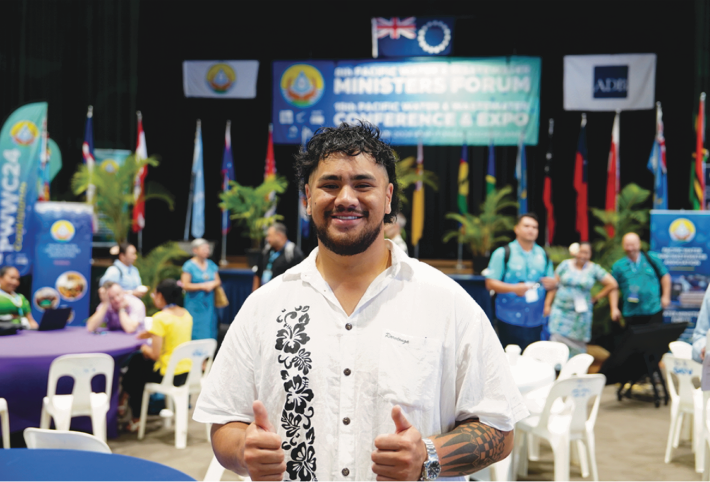
Passing the torch to new generations
With over 15 years of experience in climate change and disaster risk reduction in the Solomon Islands, as well as promoting sustainable harvesting of natural resources, water security, and resilience in the Pacific region, Mary is clear about the role of youth: "As future leaders, it is essential to involve them at all levels so they can lead the dialogues on resilience and sustainability. Additionally, she has emphasized the importance of giving them a voice in decision-making processes, including young people with disabilities, who face significant barriers to active participation," she says.
Hereiti agrees and sends a message to the young people present at the Rarotonga summit, where they are exchanging experiences and discussing solutions for their region: "Our islands are valuable, and we must protect them with determination. Change is happening now, and we must take decisive action. As small nations, we used to think that our impact wasn’t significant compared to large and developed countries, but together with other Pacific countries and with the necessary support, we can. There is a general maxim that says: 'Alone, I go faster, together we go further.”
